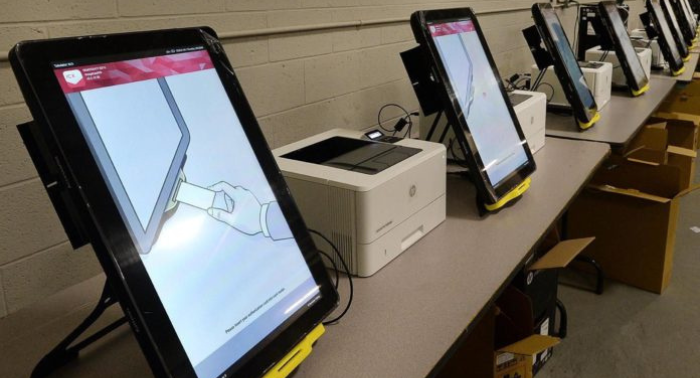Nineteen federal appellate judges are slated to convene for hearings on Tuesday to determine the fate of Mississippi’s permanent disenfranchisement of individuals convicted of specific felonies and whether it aligns with the Constitution. The case’s outcome could potentially restore voting rights to tens of thousands of individuals, though an immediate decision is not anticipated.
Last August, criminal justice advocates celebrated a significant victory when a three-judge panel from the New Orleans-based 5th U.S. Circuit Court of Appeals declared the ban unconstitutional, citing it as a violation of the “cruel and unusual” punishment prohibition. However, the full 17-member circuit court later overturned this ruling and scheduled the upcoming hearing.
The state’s attorneys contend that the voting ban constitutes a “nonpunitive voting regulation” and, even if viewed as a form of punishment, argue that it does not amount to cruel and unusual punishment.
The case will involve all 17 of the circuit court’s full-time active judges, as well as two senior-status part-time judges who were part of the panel that initially ruled against the ban in August.
Mississippi’s Constitution currently stipulates that individuals convicted of ten specific felonies, including bribery, theft, and arson, forfeit their right to vote. A prior state attorney general expanded the list to include 22 crimes, such as timber larceny and carjacking.
To have their voting rights reinstated, those convicted of any of these crimes must secure a pardon from the governor or garner two-thirds legislative approval for individual bills tailored to their cases. In recent years, few such bills have been passed, with none approved in 2023.
In August, Senior Judge James Dennis, nominated to the court by Democratic President Bill Clinton, emphasized that Mississippi’s stance on permanent disenfranchisement diverges from the prevailing trend in the nation. He was joined in the opinion by Senior Judge Carolyn Dineen King, nominated by President Jimmy Carter.
Judge Edith Jones, nominated by Republican President Ronald Reagan nearly four decades ago, was also part of the panel but dissented from the August ruling. She cited a prior Supreme Court decision that left matters of felon disenfranchisement to the purview of legislatures.
Tuesday’s hearing will feature Judge Jones and 16 other full-time circuit court members, including King and Dennis, who were part of the initial ruling panel. The 5th Circuit is known for its conservative composition, with 12 of its full-time positions filled by nominees of Republican presidents.




